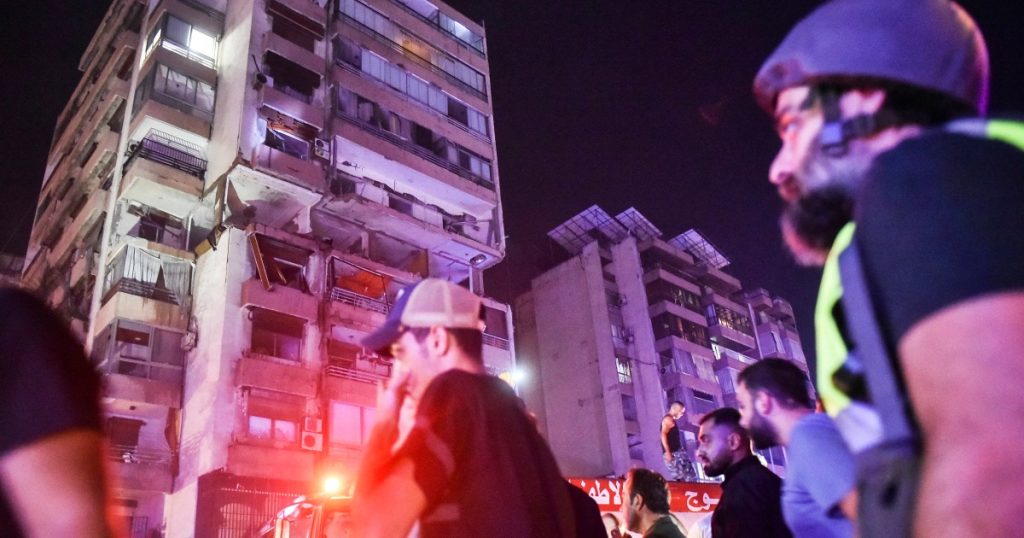The situation in Lebanon escalated on Monday after Israel launched a strike on a residential building in central Beirut, adding to the devastation of an ongoing bombing campaign that has claimed over 1,000 lives. As many as 1 million people have been displaced from their homes, leading to fears for the safety of civilians across the country. The strike in the densely populated Cola area came as a shock to many, as the district was believed to be safe from Israel’s bombardments. Humanitarian workers reported that many families had sought shelter in the area, only to have their hopes shattered by the attack.
In the aftermath of the strike, residents rushed to clear debris from storefronts and vehicles, some using broomsticks and their bare hands. Meanwhile, in southern Lebanon, Israeli forces were said to be conducting small special forces operations ahead of a potential ground offensive. These actions were aimed at gathering intelligence and probing Hezbollah’s positions as tensions in the region continued to escalate. The U.S. urged against further escalation as efforts were made to prevent an all-out war in the area, with concerns mounting over the impact on civilian populations.
Israel’s campaign in Lebanon was said to be a response to mounting hostilities between Israel and Hezbollah, with the aim of ensuring the safety and security of communities in northern Israel. Thousands of families in southern Lebanon had been displaced due to cross-border attacks and ongoing violence. The death toll from the aerial campaign in Lebanon had surpassed 1,000 people, with Hezbollah facing its own losses, including its leader Hassan Nasrallah in an Israeli strike. The situation had drawn condemnation and concern from neighboring countries and international leaders.
As displacement and destruction grew in Lebanon, Prime Minister Najib Mikati reported that as many as 1 million people had been forced from their homes. Families were seen creating makeshift shelters on streets and beaches as they fled the violence, with images emerging of the devastation in areas previously populated by civilians. Reports emerged of families, including new mothers and newborn babies, forced to sleep on the streets after fleeing their homes in search of safety. Humanitarian workers expressed shock and concern over the impact of the conflict on civilians, as fears of further escalation and long-term consequences loomed large.
In central Beirut, families were seen struggling to find shelter and basic necessities, with many left without food, medical care, or proper accommodations. As displaced families sought refuge in overcrowded schools and makeshift shelters, concerns grew over the potential humanitarian crisis. The strike on the crowded Cola area and the subsequent displacement of families added to the growing sense of insecurity and fear in the region. Humanitarian workers on the ground expressed worries about the future and the possibility of a protracted conflict, with some drawing parallels between Lebanon and the situation in Gaza.
Despite efforts to de-escalate tensions and prevent further violence, the situation in Lebanon remained volatile and uncertain. Displaced families, already facing hardship and trauma, were left with few options for safety and support. The ongoing conflict between Israel and Hezbollah continued to have devastating consequences for civilian populations on both sides, with the international community closely monitoring developments. As fears of a broader war loomed, efforts were made to address the immediate needs of displaced families and ensure their safety and well-being in the midst of the crisis.













